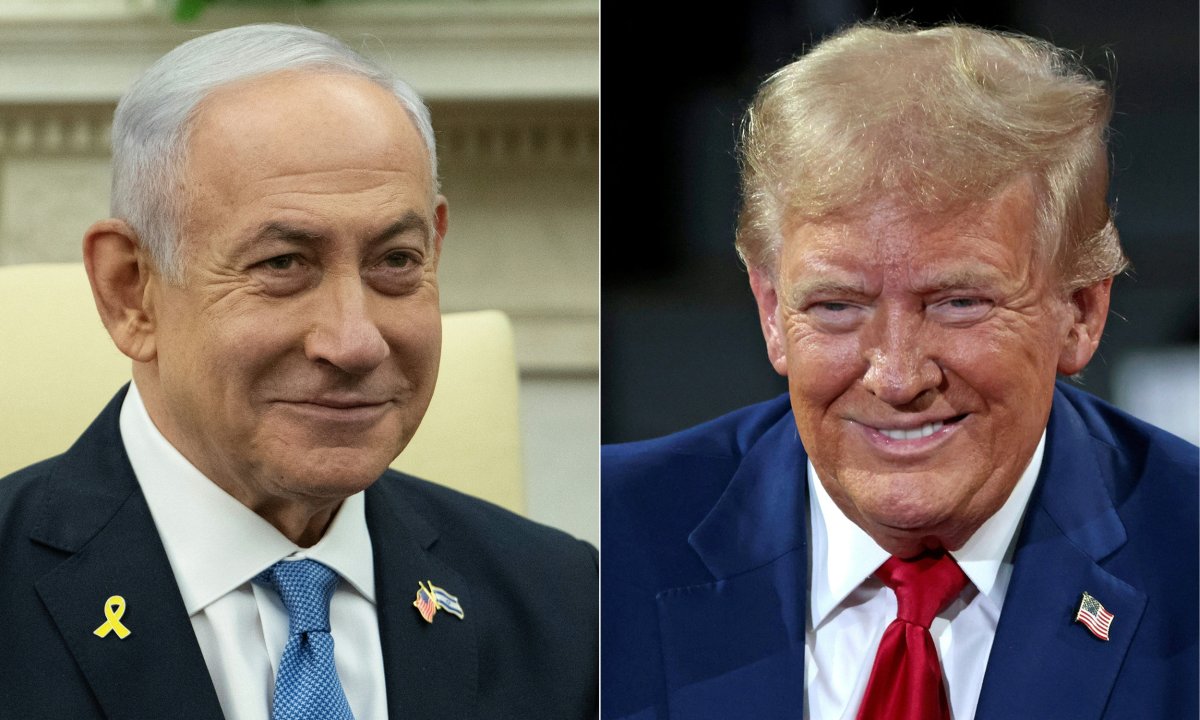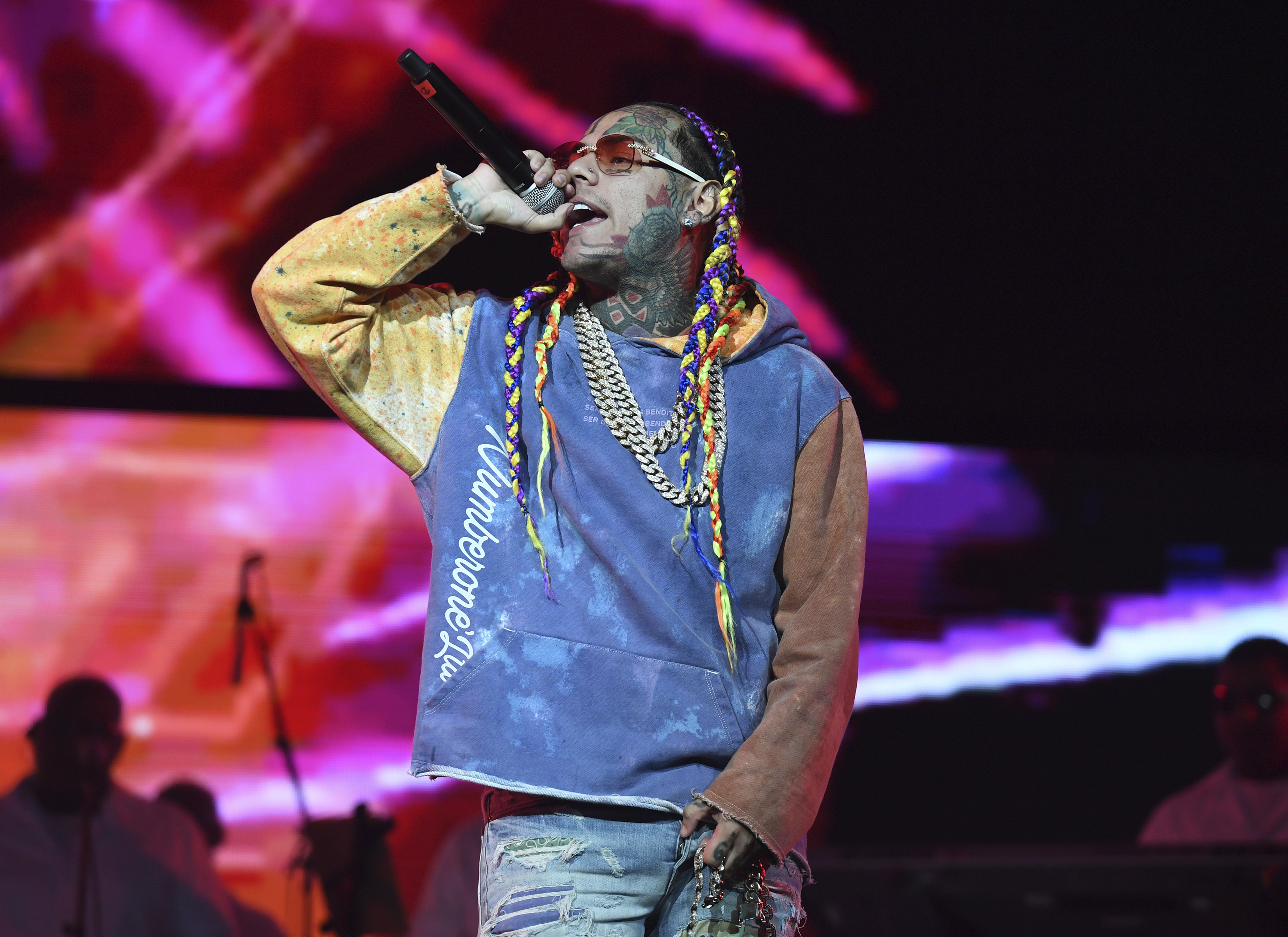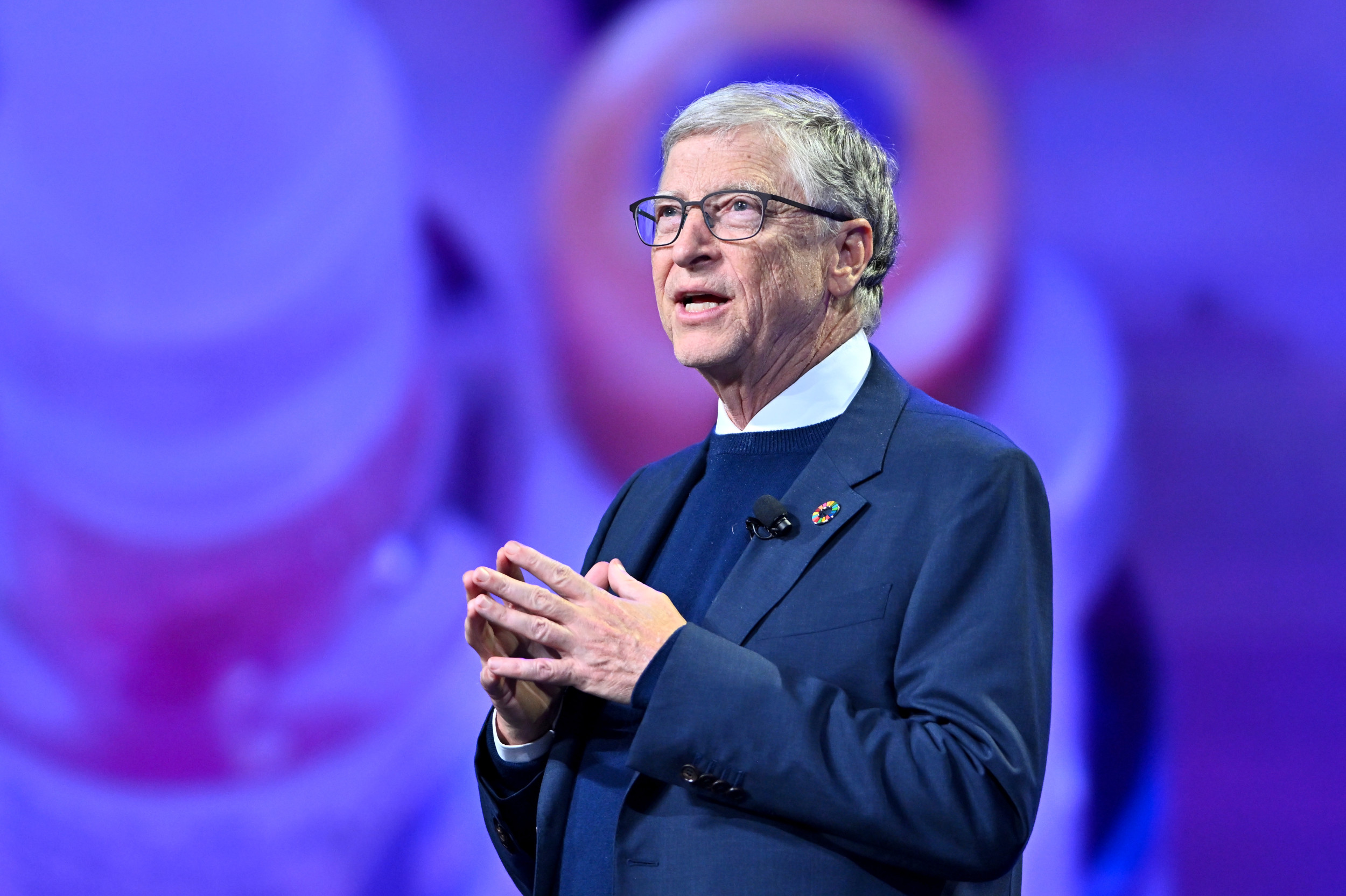After initially delaying over a "last-minute crisis" blamed on Hamas, Israeli Prime Minister Benjamin Netanyahu has opted to move forward with the Gaza ceasefire deal, which won the approval of his security cabinet on Friday.
While the hold-up from the Israeli side had roots in Netanyahu's concerns over the potential protest resignations of two ultranationalist officials key to maintaining his ruling coalition—National Security Minister Itamar Ben-Gvir and Finance Minister Bezalel Smotrich—sources and observers said U.S. President-elect Donald Trump played a decisive role in ensuring the deal progressed.
"It's as clear as can be that the delay is a result of political pressures in Jerusalem and Netanyahu's fear for his coalition," Shira Efron, senior research director at the Israel Policy Forum and former United Nations consultant in Jerusalem, told Newsweek. "The same fear that has delayed signing this agreement since May 2024, essentially, as after all—the contours of the agreement are the same."
"The only difference now, and thankfully the game changer, is the PM's desire to please President Trump," she added. "In the end of the day, his fear of Trump is greater than his fear of his extreme right-wing coalition partners, which is why the first stage of the deal was approved by the cabinet this morning and the government later for beginning of implementation Sunday as planned."
Reached for comment, Israeli international spokesperson to the U.N Jonathan Harounoff told Newsweek that "we are grateful that President [Joe] Biden and President-elect Trump and their teams worked together expeditiously on this issue."
"We appreciate how the outgoing and incoming administrations put politics aside at this transitional juncture to help advance a hostage agreement," Harounoff said.
Newsweek has reached out to the Israeli Prime Minister's Office, the Israel Defense Forces (IDF) and the Trump transition team for comment.

Even prior to the breakthrough announced Wednesday, Newsweek is told that Trump played a crucial role in pushing ahead the negotiations that had repeatedly stalled since the three-phase proposal for a cessation of hostilities and prisoner exchange was first outlined by Biden in May.
Several Israeli sources with knowledge of the talks described a concerted shift when Trump swept back into power in the November election. One source said Netanyahu felt he had little alternative than to double down on negotiations as his administration started wading in, and that Israeli negotiators had more leeway in the most recent phases of talks than before.
Israeli officials publicly and privately expressed fresh optimism in mid-December over the progress of negotiations. Similar feelings were projected by Hamas at the time.
Haim Tomer, the former head of the intelligence division of Israel's Mossad intelligence agency, who also led the international cooperation division, said the mediating teams from Qatar, the U.S. and Egypt had a definite sense of trust in Mossad's current chief, David Barnea, who travelled to Doha for the late stages of the talks.
More broadly, Israel's security chiefs had been scarred by the disintegration of ceasefire and hostage talks at the 11th hour in previous rounds and were keen to move toward a comprehensive end to fighting, Tomer told Newsweek.
Trump, meanwhile, began to weigh in more heavily on the talks in early December, when he first warned of "hell to pay" if hostages were not released by his January 20 inauguration date.
From Trump's side, the deployment to the talks of the incoming president's Middle East envoy, Steve Witkoff, appeared to be particularly consequential. After Trump doubled down on his demands for the two sides to come to an agreement in the final days of the Biden administration, Witkoff held an urgent meeting with Netanyahu last Saturday, notably the Sabbath, the Jewish day of rest.
By Monday, Trump and Biden were signaling that a deal was imminent as talks intensified over the next couple of days, with details still being finalized up until just hours before the resolution became public on Wednesday. One senior Biden administration official told reporters later that day that the deal truly came together only that afternoon, hailing the collaboration between the teams of Biden and Trump as a "highly constructive, very fruitful partnership" that was "historically almost unprecedented."
Shortly after a Hamas source informed Newsweek that the two sides had reached a deal, Trump was the first to publicly announce an "EPIC ceasefire agreement" had been achieved, asserting that it "could have only happened as a result of our Historic Victory in November."
The post to his Truth Social account preempted the formal declaration hours later by Qatari Prime Minister and Foreign Minister Sheikh Mohammed bin Abdulrahman bin Jassim Al Thani during a press conference in Doha.
"What we have seen from the U.S. in the past few days, seeing a collaboration transcending both administrations, was a clear demonstration for the commitment of the U.S. to reach to that deal," Sheikh Mohammed said at the time.
Asked about how much credit he would give Trump for the ceasefire coming together, Biden first emphasized that the initial proposal and the subsequent pressure put on Hamas and its allies had been the result of his policies before saying that he directed his team "to coordinate closely with the incoming team to make sure we're all speaking with the same voice because that's what American presidents do."
In response to a reporter's final shouted question about whether he or Trump deserved credit for the deal, Biden simply replied, "Is that a joke?"
But even after all sides had confirmed the agreement on Wednesday and official reactions began to come in from across the globe, the Israeli government had still yet to issue a formal comment. Despite the apparent consensus, Netanyahu's office told Newsweek the following day that "several items in the framework have yet to be finalized."
The statement also said that "due to the strong insistence of Prime Minister Benjamin Netanyahu, Hamas folded on its last-minute demand to change the deployment of IDF forces in the Philadelphi Corridor," the Israeli term for the border between Gaza and Egypt.
This line appears to contradict the terms of the agreement regarding the presence of the Israel Defense Forces (IDF) at the boundary, which have been reviewed by Newsweek:
"a. The Israeli side will gradually reduce the forces in the corridor area during stage 1 based on the accompanying maps and the agreement between both sides.
"b. After the last hostage released of stage one, on day 42, the Israeli forces will begin their withdrawal and complete it no later than day 50."
Meanwhile, Smotrich, head of the National Religious Party-Religious Zionism, had referred to the agreement on Wednesday as a "bad and dangerous deal for the national security of the State of Israel," while Ben-Gvir outright vowed he and his Otzma Yehudit party would quit the government over what he saw as a "disastrous deal."
Ben-Gvir's threat drew a rare direct response from Netanyahu's Likud party, which defended the agreement as the best chance to secure the release of the nearly 100 hostages still in Hamas captivity since the group's October 7, 2023, attack that sparked the war, while allowing the IDF to "maintain full control of the Philadelphi Route and the security buffer that surrounds the entire Gaza Strip."
Likud warned that "anyone who dissolves the right-wing government will be remembered as an eternal disgrace" in the statement published Thursday by Israeli media.
After Netanyahu announced a sudden delay in the anticipated vote among his cabinet members the same day, Israeli government spokesperson David Mencer alleged that Hamas had issued new demands related to the presence of Israeli troops at the Philadelphi Corridor. Hamas denied the claim, saying it remained committed to the agreement as presented.
The Israeli premier ultimately brought the deal to a successful vote on Friday, to be followed by a broader cabinet vote and a subsequent vote among lawmakers in the Knesset. If approved there, implementation of the deal, including a six-weak ceasefire and the exchange of 33 hostages held by Hamas for 110 Palestinian prisoners held by Israel, is expected to begin Sunday.
Trump did not directly address the temporary hesitation from the Israeli side, though he shared a Times of Israel article on Thursday citing Arab officials arguing that Witkoff did more in one meeting to influence Netanyahu than the Biden administration had achieved over the past year.
Trump later shared a Just the News article reporting Friday on Netanyahu's eventual decision to greenlight the deal after the delay.
While the incoming president continues to dominate the narrative on the late-stage progress toward a ceasefire with the potential to put a lasting end to the 15-month war, others point to internal pressures that have also swayed Netanyahu.
"The last-minute hiccup in convening the Israeli cabinet to approve the deal has been a microcosm of the Netanyahu conduct on the issue throughout: the longevity of his governing coalition being the primary consideration," Nimrod Novik, an Israel Policy Forum fellow who served as senior foreign policy adviser to former Israeli Prime Minister Shimon Peres, told Newsweek.
"Once he reached the conclusion that one of the two most extreme members of his government, who only jointly can deprive him of a governing majority, is not about to jump ship, he went for it," Novik said. "Indeed, recently he reached the conclusion that whereas Ben Gvir might quit, Smotrich would not."
Novik argued that it was Netanyahu's ability to win over his finance minister that truly encouraged him to bring the ceasefire to a vote.
"Happy with his powerful position and alarmed by consistent polls indicating that he is not making the electoral threshold, thus not returning should elections are called, all Bibi [Netanyahu] had to do is offer him some face-saving formula," Novik said.
"The Biden-Trump cooperation on this issue has been both unprecedented and impressive," Novik said. "But in affecting the Netanyahu calculus, investing in Trump's goodwill was a bonus, not the driver of the decision."
Yet uncertainties, such as that surrounding the IDF presence at the Philadelphi Corridor, continue to threaten the future of the ceasefire.
"Whether the political crisis with Smotrich and Ben Gvir was as serious or mostly posturing, Efron said, "it was clear that the fear of Trump would trump Netanyahu's other considerations."
"Where we could be facing a more serious crisis is in the negotiations and transition into stage 2, and if there is stage 3, of the agreement," she added. "Full IDF withdrawal from Gaza, declaration of the end of the war and essentially admission that Israel failed to achieve its war aims will have both political but also substantial criticisms."
At the same time, the IDF has continued to conduct strikes against Gaza, targeting about 50 positions Thursday alone.
"The Hamas terrorist organization continues to exploit the civilian population for its terror attacks against the State of Israel in violation of international law," the IDF said. "The IDF will continue to operate against the threat of these terrorist organizations."
In a statement issued Friday, Hamas said that "the occupation airstrikes across Gaza have killed 117 Palestinians, including 32 women & 30 children, and injured 266 others," citing an official tally by the Gaza Civil Defense.




















 English (US) ·
English (US) ·